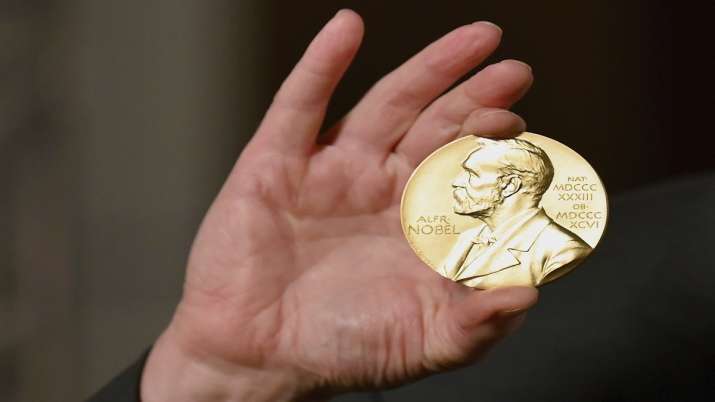
Chemistry Nobel awarded for new way of making molecules
Two scientists won the Nobel Prize in Chemistry on Wednesday for discovering an “ingenious” new way of manufacturing molecules that could be used to make everything from medicines to the flavor of food.
Germany’s Benjamin List and Scottish-born David WC Macmillan developed “asymmetric organocatalysis” – work that has already had a significant impact on pharmaceutical research, said Goran Hansen, secretary general of the Royal Swedish Academy of Sciences. The judges said the equipment also “greener” the chemistry.
“It is already greatly benefiting mankind,” said Pernilla Witung-Staffshed, a member of the Nobel panel.
Making molecules—which require linking individual atoms together in specific arrangements—is a difficult and slow task. Until the turn of the millennium, chemists had only two methods—or catalysts—to speed up the process.
“But in the year 2000, everything changed,” said Witung-Staffshed.
List by Macmillan of the Max Planck Institute and Princeton University independently reported that small organic molecules could be used to do the same thing as larger enzymes and metal catalysts, which are “precise, cheap, fast and environmentally friendly”. . he said. “This new toolbox is widely used today, for example, in drug discovery and in the production of fine chemicals.”
Johann Eckvist, chairman of the Nobel Committee for Chemistry, said: “The concept for catalysis is as simple as it gets, and the fact that many people have wondered why we didn’t think of it before.”
Speaking after the announcement, List said the award was a “huge surprise”.
“I didn’t expect it at all,” said the 53-year-old, who was on holiday in Amsterdam when he received a call from Sweden.
List said he didn’t initially know Macmillan was working on the same subject and thought his hunch might just be a “stupid idea”—until it worked.
“I thought it might be something big,” he said.
It is common for many scientists working in related fields to share the award. Last year, the Chemistry Prize was awarded to Emmanuel Charpentier of France and Jennifer A. Doudna for developing a gene-editing tool that has revolutionized science by providing a way to alter DNA.
The coveted prize comes with a gold medal and 10 million Swedish kronor (over $1.14 million). The prize money comes from a will left by the prize’s creator, Swedish inventor Alfred Nobel, who died in 1895.
On Monday, the Nobel committee awarded the Prize in Physiology or Medicine to Americans David Julius and Ardame Patapoutian for their discoveries about how the human body perceives temperature and touch.
The Nobel Prize in Physics was awarded Tuesday to three scientists whose work helped explain and predict the complex forces of nature, including expanding our understanding of climate change.
In the coming days, awards will also be given for outstanding work in the field of literature, peace and economics.
.